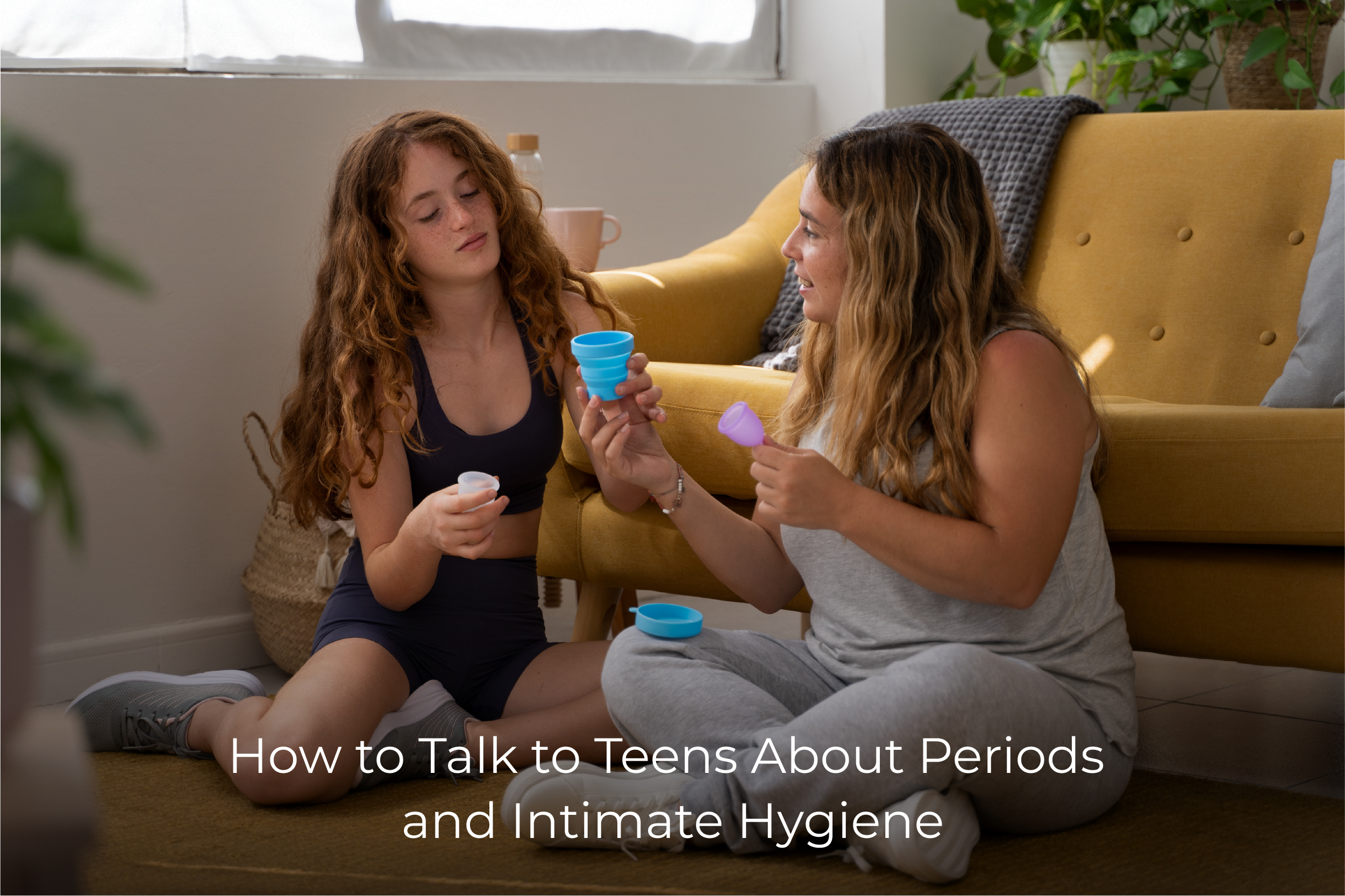How to Talk to Teens About Periods and Intimate Hygiene
Navigating conversations about periods and intimate hygiene with teens can feel overwhelming for many parents, guardians, and educators. However, fostering open, honest, and supportive discussions is essential for empowering teens to understand their bodies and embrace their health with confidence.
Here’s a comprehensive guide to help you talk to teens about periods and intimate hygiene effectively.
1. Create a Safe and Comfortable Environment
Before starting the conversation, ensure a supportive and judgment-free atmosphere. Teens are more inclined to share their thoughts when they feel secure and valued.
- Choose the Right Moment: Pick a private, relaxed setting where the teen feels at ease.
- Be Approachable: Use a calm, reassuring tone and let them know they can ask questions without fear of embarrassment.
2. Start with the Basics
Teens need accurate, age-appropriate information about their bodies. Begin with a clear explanation of menstruation and its role in reproductive health.
- Explain What Periods Are: Discuss how periods are a natural part of growing up and the menstrual cycle’s function in the body.
- Normalize the Experience: Emphasize that menstruation is normal and experienced by billions of people worldwide.
3. Address Common Concerns
Teens may have questions or anxieties about periods and intimate hygiene. Be prepared to address these concerns with empathy and factual information.
- Pain and Discomfort: Explain that cramps and other symptoms are common but manageable. Suggest remedies such as heat pads, staying hydrated, and using appropriate over-the-counter medications.
- Hygiene Practices: Teach the importance of changing sanitary products regularly, washing with water, and wearing breathable clothing.
- Managing Emotions: Acknowledge that hormonal changes can affect mood and suggest ways to cope, like journaling or light exercise.
4. Teach Proper Intimate Hygiene
Proper intimate hygiene is crucial for preventing infections and maintaining overall health.
- Gentle Cleansing: Recommend using warm water and avoiding harsh soaps or scented products.
- Changing Pads/Tampons: Emphasize changing sanitary products every 4-6 hours to prevent discomfort and infections.
- Underwear Care: Encourage wearing clean, breathable cotton underwear and washing them thoroughly.
5. Use Resources and Visual Aids
Visual aids like diagrams, videos, or pamphlets can make explanations easier to understand. There are many teen-friendly resources available to support your discussions.
6. Foster Open Communication
Make the conversation a continuous dialogue rather than a one-off discussion.
- Check In Regularly: Ask how they’re feeling and if they have new questions.
- Encourage Questions: Let them know there’s no such thing as a “silly question” when it comes to health.
- Involve Trusted Adults: If you’re unsure about addressing certain topics, consider involving a healthcare professional or educator.
7. Normalize Period Products
Break the stigma by talking openly about period products like pads, tampons, and menstrual cups.
- Explain Their Use: Demonstrate how to use them if needed.
- Encourage Preparedness: Suggest carrying period supplies in their bag to feel confident during unexpected moments.
8. Address Myths and Misconceptions
Teens may hear misinformation from peers or online. Use this opportunity to debunk myths, such as:
- Period blood is “dirty.”
- You can’t exercise or swim during your period.
- Tampons cause harm.
Provide scientific explanations to counter these misconceptions.
9. Promote Self-Care and Confidence
Periods and intimate hygiene are part of self-care. Encourage teens to view these practices positively.
- Celebrate Their Growth: Remind them that this is a natural part of becoming an adult.
- Boost Confidence: Encourage them to embrace their body and its natural processes without shame.
10. When to Seek Help
Teach teens to recognize signs of potential health concerns and when to seek professional advice.
- Heavy or irregular bleeding
- Severe pain or cramps
- Signs of infection like unusual odor, itching, or discomfort
Conclusion
Talking to teens about periods and intimate hygiene is about building trust, providing education, and empowering them to care for their health. With patience and understanding, you can help them feel confident, informed, and prepared to navigate this important aspect of life.


